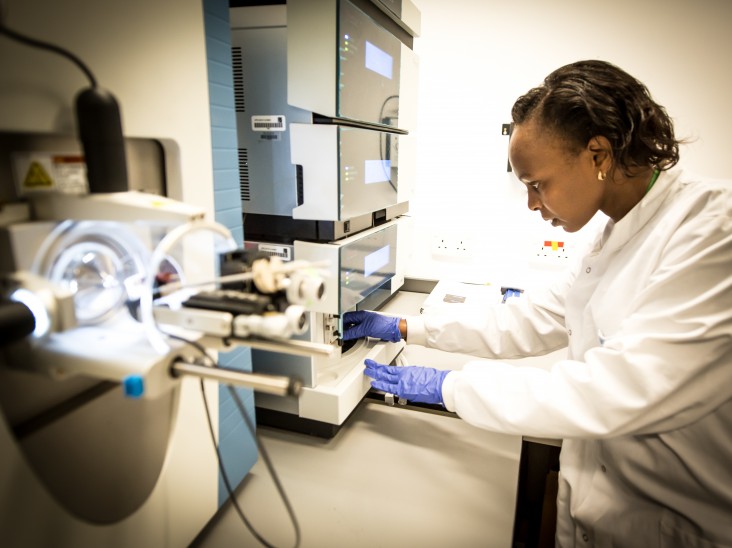- What We Do
- Agriculture and Food Security
- Democracy, Human Rights and Governance
- Economic Growth and Trade
- Education
- Environment and Global Climate Change
- Gender Equality and Women's Empowerment
- Global Health
- Humanitarian Assistance
- Transformation at USAID
- Water and Sanitation
- Working in Crises and Conflict
- U.S. Global Development Lab
Speeches Shim


Ethel Makila
Ethel Makila is the Associate Director, Advocacy, Policy and Communications at the International AIDS Vaccine Initiative (IAVI). Ethel leads IAVI African programs in political, policy and science advocacy from Nairobi, Kenya.
Recent Blog Posts
- Paving the Way for African Scientists to Spearhead HIV Vaccine Development
Dr. Daniel Ochiel and Dr. Jill Gilmour - January 30, 2019 - HIV Vaccines Garner Support from the Faith Community in Kayole, Kenya
Ethel Makila - January 30, 2019
Since its inception, USAID, through the U.S. President’s Emergency Plan for AIDS Relief (PEPFAR), has relied on faith-based organizations to accomplish sustainable control of the AIDS epidemic. These valued, unique partnerships, as described recently by USAID Administrator Mark Green at the PEPFAR Faith Communities and HIV Technical Summit, continue to actively play an important role to reach sustained epidemic control.
Religious leaders and organizations can have profound effects on the health of their congregants and communities. From influencing perceptions about health and medicine and shaping public health policies, to providing health services and diminishing stigmas surrounding seeking care, religious communities are essential partners in addressing health challenges.
Recently, as part of the Coalition to Accelerate and Support Prevention Research (CASPR) program, funded by USAID and PEPFAR, the International AIDS Vaccine Initiative (IAVI) and its clinical research center partner Kenya AIDS Vaccine Initiative, Institute for Clinical Research (KAVI-ICR); religious leaders in Kayole, Kenya discussed HIV vaccine research and their community’s role in an upcoming clinical trial.
The Gospel Parliament Research Project, a group of religious leaders who facilitate discussions on issues affecting their communities, gathered 36 members to debate if they supported HIV vaccine research. The resulting discussion shed light on the differing views of the community’s influential religious leaders, revealing gaps in HIV research literacy that could potentially affect participation in and support for biomedical HIV prevention research. These gaps included questions about HIV vaccine candidate components, the differences between preventive HIV vaccines and cure approaches, eligibility for participation in clinical trials, and policies related to HIV vaccine research and development. After rich discussions and careful deliberation, the participants agreed to support HIV vaccine research.
Insight and support from these well-informed, local religious leaders will help the upcoming Globally Relevant AIDS Vaccine Europe-Africa Trials Partnership (GREAT) trial of a promising HIV vaccine candidate succeed. As the global health community attempts to reduce the rate of new HIV infections in sub-Saharan Africa, a vaccine capable of preventing HIV infection remains an essential tool in halting the spread of HIV. Help from faith-based leaders and organizations in the design and implementation of clinical trials ensures that high ethical practices are followed and communities can understand and accept the proposed research and any resulting products. Working closely with them is a critical component of developing a vaccine and ultimately, ending HIV.

Comment
Make a general inquiry or suggest an improvement.